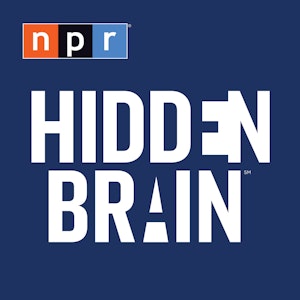Shankar Vedantam
Podcasts
Stories
-

Sex Machines: Love In The Age Of Robots
From stone statues to silicone works of art, we have long sought solace and sex from inanimate objects. Time and technology have perfected the artificial lover: today we have life-size silicone love dolls so finely crafted they feel like works of art. Now, with the help of robotics and artificial intelligence, these dolls are becoming even more like humans. This week, we revisit our 2019 story about the history of the artificial lover, and consider what love and sex look like in the age of robots.
-
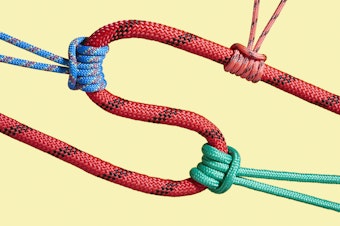
Playing Tight And Loose: How Rules Shape Our Lives
We all know people who prefer to follow the rules, and others who prefer to flout them. Psychologist Michele Gelfand defines these two ways of being as "tight" and "loose." She says the tight/loose framework can help us to better understand individuals, businesses, and even nations. This week, we look at the core traits of tight and loose worldviews, and how they may shape our lives — from interactions with our spouses to global efforts to fight the coronavirus.
-

Close Enough: The Lure of Living Through Others
A silver lining of social distancing: you may have more time and space to pursue the projects you've bookmarked on your web browser. Whether your goal is to build a barn door or to update your makeup routine, online tutorials have made it easier than ever to bring the world into your living room or kitchen or bedroom. But a curious thing can happen when we watch experts doing expert things. This week, we explore the dangers and the delights of vicarious living, with a favorite episode from 2019.
-
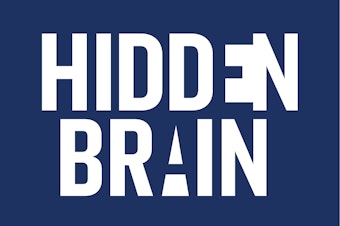
An Unfinished Lesson: What The 1918 Flu Tells Us About Human Nature
A virus is more than a biological organism. It's a social organism. It detects fissures in societies and fault lines between communities. Historian Nancy Bristow shares the lessons about human behavior that we can take away from a century-old pandemic.
-

Panic In The Street: How Psychology Shaped The Response To An Epidemic
It sounds like a movie plot: police discover the body of a young man who's been murdered. The body tests positive for a deadly infectious disease. Authorities trace the killing to a gang. They race to find the gang members, who may also be incubating the virus. This week on Hidden Brain, we revisit our 2016 story about disease, panic, and how a public health team used psychology to confront an epidemic.
-

The Bomb That Didn't Explode: Why Our Fears About Population Growth Didn't Come True
We know that we live in an ever-changing world, but one thing we often overlook is demographic change. Whether the world's population is growing or shrinking can affect many aspects of our lives, from the number of kids we have to the likelihood that we'll live to old age. This week on Hidden Brain, we explore how our planet's population is changing, and what that means for us in the century to come.
-

The Cowboy Philosopher: A Tale Of Obsession, Scams, And Family
In 2009, an old man died in a California nursing home. His obituary included not just his given name, but a long list of the pseudonyms he'd been known to use. In this episode, which we originally released in 2019, we trace the life of Riley Shepard, a hillbilly musician, writer, small-time con man and, perhaps, a genius.
-

The Influence You Have: Why We're Blind To Our Power Over Others
Think about the last time you asked someone for something. Maybe you were nervous or worried about what the person would think of you. Chances are that you didn't stop to think about the pressure you were exerting on that person. This week, we explore a phenomenon that psychologists refer to as "egocentric bias," and look at how this bias can lead us astray.
-
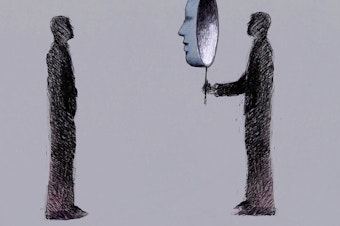
Liar, Liar, Liar
We all lie. But what separates the average person from the infamous cheaters we see on the news? Dan Ariely says we like to think it's character — but in his research he's found it's more often opportunity. Dan Ariely is a professor at Duke University and the author of the book, The Honest Truth About Dishonesty: How We Lie to Everyone — Especially Ourselves. We spoke to him in March 2017.
-
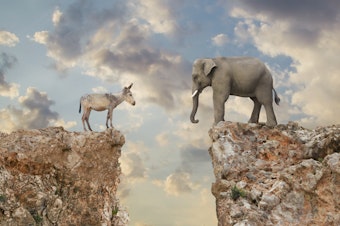
Passion Isn't Enough: The Rise Of 'Political Hobbyism' in the United States
Many Americans feel an obligation to keep up with political news. But maybe we should be focusing our energies elsewhere. Political scientist Eitan Hersh says there's been a rise in "political hobbyism" in the United States. We treat politics like entertainment, following the latest updates like we follow our favorite sports teams. Instead, he says, we should think of politics as a way to acquire power and persuade our neighbors to back the issues we support.
